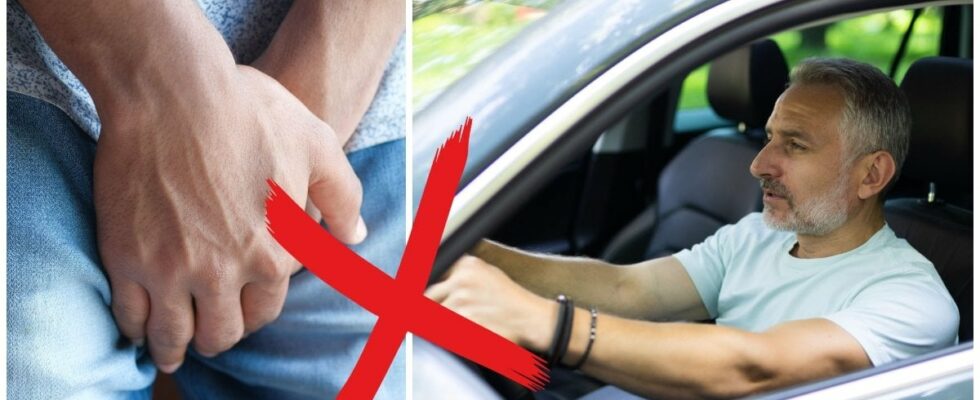Everyone has been there at some point: you feel the need to urinate, but the ability to empty your bladder is limited or non-existent.
Maybe there is no toilet available or you even feel that, with a little willpower, you can hold on for a while longer.
But how often should you urinate and how long is “normal” to be able to hold it? News24 asked Hans Lindholmspecialist doctor at My Doctor.
– If you calculate the time you are awake, you can say that most people should urinate every three or four hours, or if we turn it around: it is usually said that it is normal to go to the toilet four to eight times a day, which of course varies depending on how much you drink, he replies and continues:
– If you tend to hold for longer periods, your bladder can stretch and you can therefore handle even more urine.
DO NOT MISS: The pharmacist warns: It happens if you eat too many vitamins
Photo: Bertil Ericson/TT
READ MORE: This is how you maximize the effect of your allergy medicine
Lindholm further emphasizes that some people need to urinate more often.
– For example, men over 50 years of age because they may have an enlarged prostate gland which leads to some urine remaining in the bladder, and therefore it becomes completely filled again faster. Others who are particularly vulnerable are diabetics, who due to their disease have a reduced sensitivity to the signals from a full bladder.
It happens if you “hold on” too much
Those who can abstain should do so in moderation.
– Firstly, it is uncomfortable, and it can be difficult to sit still. But it’s not dangerous to hold back sometimes even though you need to pee. However, if you do it regularly over a longer period, it can at worst lead to problems, says Hans Lindholm and explains further:
– A distended bladder can cause difficulty urinating, pain and leakage. If you often refrain from urinating, it can increase the risk of urinary tract infections because the bacteria are not cleared properly. It can also increase the risk of urinary retention, which means that you will have difficulty urinating and may need the help of a catheter.
Photo: Fredrik Sandberg/TT
According to Lindholm, “in the worst case”, if you have been in the habit of holding back for several years, another problem may arise.
– It is that you risk stretching the circular sphincter muscles, the sphincters, which regulate the flow of urine and that you therefore risk “leaking” urine and when you visit the toilet it is not certain that the entire bladder is emptied.
– When we urinate, the remaining liquid and residual products are filtered away via your kidneys, so it is important to regularly empty your bladder.
DO NOT MISS: Then you should seek treatment for your hair loss – the doctor: “Can create a lot of suffering”
Therefore, you should not “stay” in the car
Anyone who is going to drive or ride a car can benefit from taking a pee break. If the accident is imminent and you get a strong blow to the bladder, it can end badly.
– It is unusual for the bladder to burst, but it is possible, says Hans Lindholm.
– If the bladder bursts, you get acute peritonitis, that is, an irritation of the peritoneum, and you then need emergency surgery to repair the bladder.
If you are going out on the roads and have a long journey ahead of you, Lindholm recommends that you avoid fluid-reducing drinks, such as coffee.
READ MORE: These are the people who need the most sleep – the expert: “Some individuals…”
